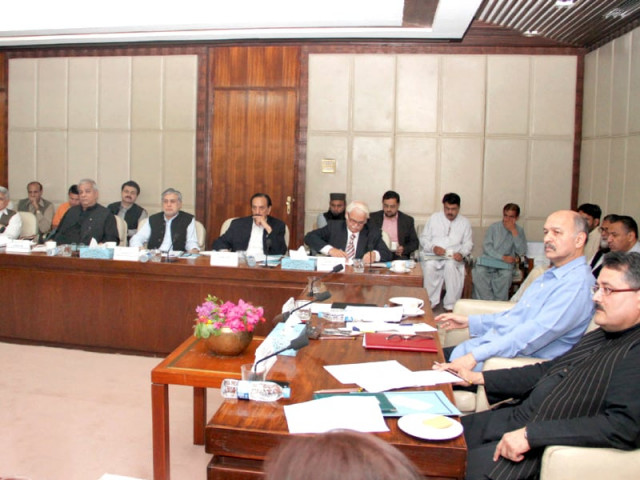Public hearing: Experts come up with a raft of proposals
Mushahid Hussain says all segments of society should help formulate a robust defence policy.

Experts drew up a raft of proposals on Saturday during a special session of the Senate’s standing committee on defence which was aimed at formulising policy guidelines for the government and parliament.
The meeting was attended by experts on non-conventional defence, counterterrorism strategy and Afghanistan and Federally Administered Tribal Areas (FATA).
The session — the first public hearing of a parliamentary standing committee — was addressed by Dr Shireen Mazari, Salim Safi and Tariq Khosa, who made their respective presentations on the topic. Chaired by Senator Mushahid Hussain Sayed, the session was attended by other senators including Farhatullah Babar and Faisal Raza Abidi.
Mushahid Hussain emphasised that all segments of society should contribute towards defining a defence policy.
“We want to put together input by different segments of society in devising a robust defence policy. In this regard, we have recorded all the proposals given by our analysts. Eventually, we will make public the Defence Policy Strategy as policy guidelines which will be unveiled in January 2013,” he added.
Mushahid pointed out that defence policy will not only cover military defence but also underscore key components including the economy, social sector, parliament, rule of law and human security.
He said that the people of Pakistan, being major stakeholders in defence policy, should be made more aware.
Journalist Sami Safi gave an overview of the law and order situation in Afghanistan and Fata. He proposed that Pakistan should support Afghanistan on its proposed solutions. He also warned that as the situation in Afghanistan was fluid, any mistake on Pakistan’s part could prove disastrous for the country.
Safi generated the idea of holding dialogue between the civilian and the military government. He added that the drift between the two will only complicate the country’s stand on Afghanistan.
‘Spend more on nukes’
Dr Mazari briefed the session about the country’s nuclear programme. She gave an overview of the country’s achievement in its non-conventional defence, comparing it with the nuclear programmes of other countries, including that of India.
She proposed that Pakistan should insist on its stated position on the Fissile Material Cut-off Treaty (FMCT) to safeguard its advantage against other nuclear countries as fissile material control may jeopardise its future endeavours in the nuclear field.
She also insisted that the country should spend more on its nuclear programme which will be useful for its defence.
‘Ban militants, not outfits’
Tariq Khosa, a former director general of the FIA, summarised the session about militancy and counter-terrorism and recommended that the government should ban office-bearers of the banned outfits instead of banning militant organisations.
Regarding the violence in Balochistan, Khosa emphasised that the provincial government should take concrete steps to counteract terrorism. The police, according to him, should replace the Levies Forces in the province. Moreover, the Frontier Constabulary should be assigned the task of monitoring highways, he said.
He pointed out that Balochistan’s youth was committed to Pakistan and contested the impression that its young people were prone to violence. He said that employment opportunities should be given to them to bring an end to poverty.
The senators lauded the initiative of the defence committee and congratulated them on launching their website.
Published in The Express Tribune, September 29th, 2012.



















COMMENTS
Comments are moderated and generally will be posted if they are on-topic and not abusive.
For more information, please see our Comments FAQ